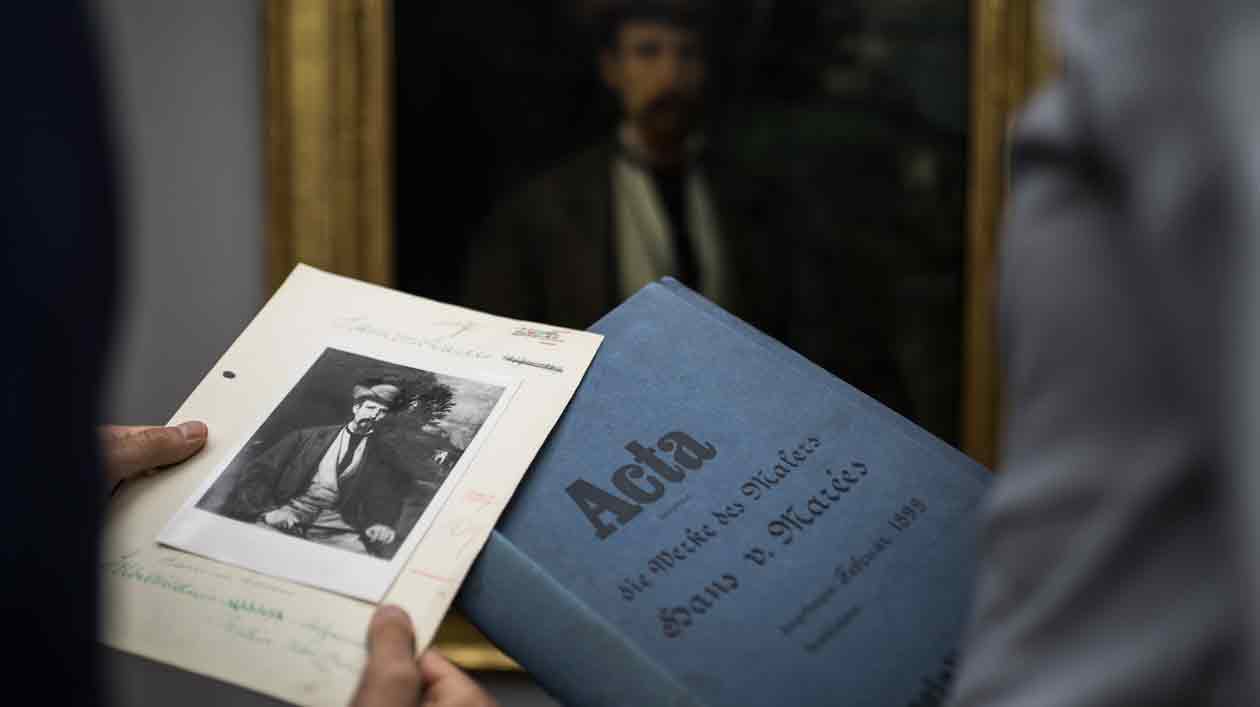The Cases Are Becoming More Complicated
News from 12/03/2018
Hermann Parzinger on the results of the “20 Years of Washington Principles: Roadmap for the Future” international specialist conference

Together with the German Lost Art Foundation and Kulturstiftung der Länder, the cultural foundation of the German states, Stiftung Preussischer Kulturbesitz (Prussian Cultural Heritage Foundation, SPK) held an international follow-up conference on the Washington meeting. How would you summarize the conference?
I think it became clear that the conference held in Washington, D.C., in 1998 really was a revolution, just like Stuart Eizenstat, who was the conference’s organizer, said. Since then, many museums around the world have proactively researched to find property confiscated by the Nazis, and involved the heirs in their search for fair, just solutions. But this is not the case in all countries. The conference pointed out that some Eastern European countries have not developed activities for dealing with the art confiscated by the Nazis. The European community as a whole has to make it clear that this is not acceptable. After all the countries I am referring to also signed the Washington Principles.
What is the situation in Germany? Ronald Lauder of the Jewish World Congress still sees an urgent need for action while Minister of State for Culture Grütters refers to the success stories. What is your position?
In the past two decades, Germany has restituted 5,746 cultural objects from museums and more than 11,676 books. SPK returned 350 works of art and more than 2,000 books. We can be proud of these results, even if there is still an enormous amount of work to do. We can partially understand Ronald Lauder’s impatience. The circumstances are more difficult now. We are only researching a few cases based on confiscated art; most of them deal with complex business transactions involving the former owners and the influence of the political situation on those families.
In your opinion, what would speed up the process?
The conference underscored our need for more transparency: publications, databases and exhibitions. Our position and what we have opened up must be visible in the Internet. The problem is that most German museums lack the personnel and infrastructure for this new cluster of tasks. We need money and personnel to fill the databases once they are set up. The meeting in Berlin showed that provenance research is a victim of its project orientation. We need more permanent positions throughout Germany in order to make progress. Developing networks is important too.
I would like to mention the Arbeitskreis Provenienzforschung (Provenance Research Work Group) in this context. It started as a group of four researchers but meanwhile has expanded to encompass 300 members who meet and network regularly. We keep in touch informally with experts from the Netherlands, France, and the USA. There is also regular contact with PREP Project researchers in the USA. Or think of German Sales, the online platform upon which we published auction catalogs from 1900 to 1945 together with the University of Heidelberg and Getty. This is a very important resource for researchers.
How do you deal with artworks and objects that have been proven to be property that was confiscated by the Nazis, but for which no heirs have been found?
I think it is important for the Minister of State for Culture to also commission the German Lost Art Foundation to help in the search for heirs. The joint declaration by Germany and the USA that was signed in Berlin states: “Creative solutions can be considered if heirs cannot be found: for example, using heirless artworks as tools for educating people about the Holocaust in exhibitions around the world, and identifying the exhibited artworks as having been confiscated from Jewish families.”
In your speech, you also called on the art trade to adopt the Washington Principles.
Yes, aside from a few positive examples like Neumeister, the auction house in Munich, art dealers have not recognized the moral necessity of supporting the museums’ efforts. This also applies to new acquisitions. Frequently, we are not even told the supplier’s name at auction and have to spend our own money to research the provenance although the dealer has the information. That has to change!
One last question: Do you think a restitution law is necessary?
I think we should definitely discuss whether such a law – like the one Austria has, for example – would make sense for Germany. I believe it would be a great help to museums in handling requests for restitution.
The interview was conducted by Ingolf Kern.

